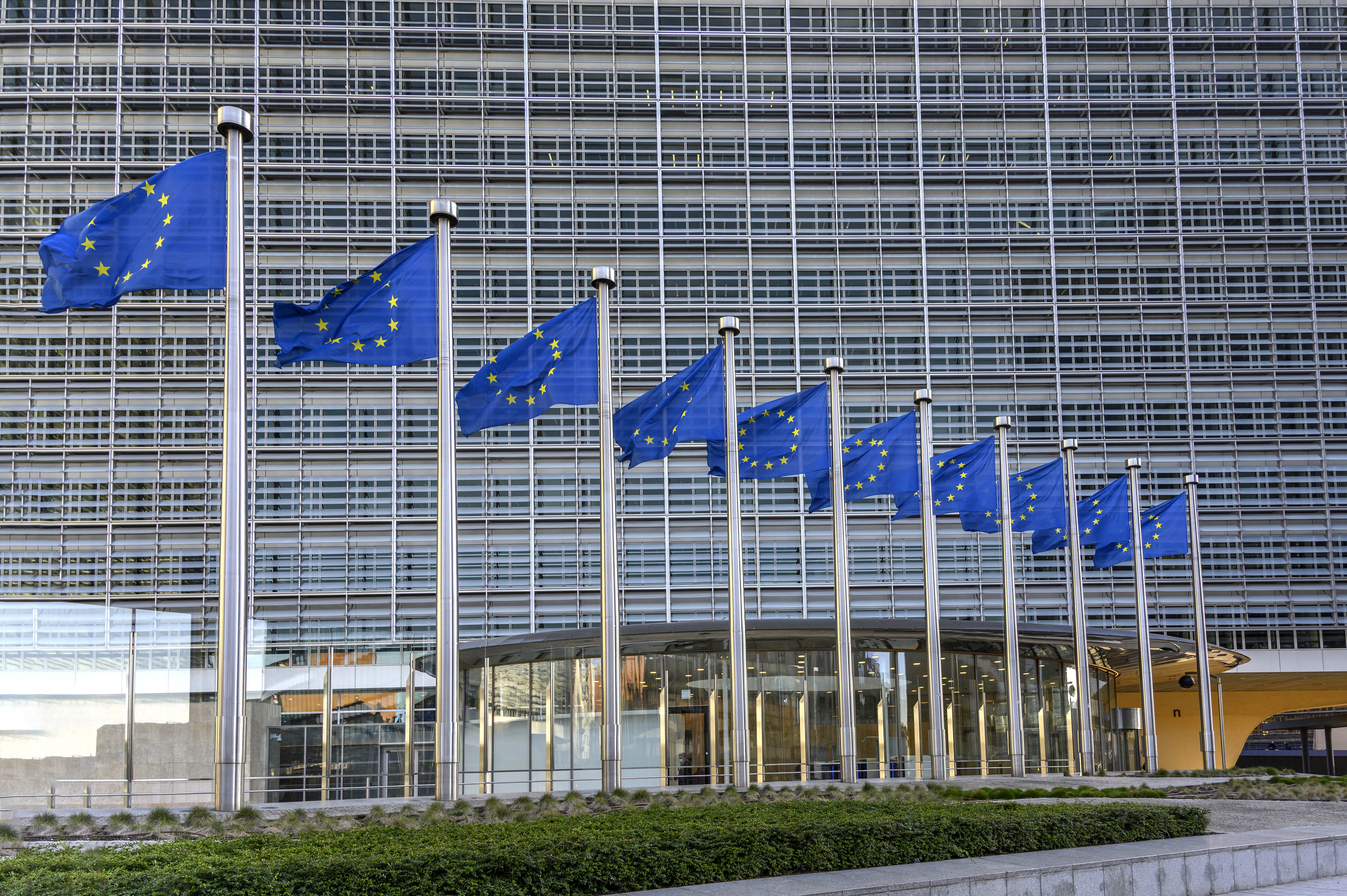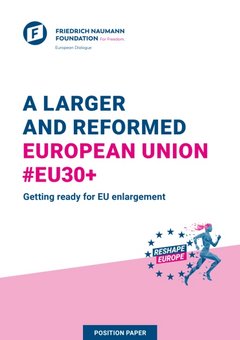Publication
A larger and reformed European Union #EU30+

The enlargement of the European Union is an absolute geopolitical imperative for the EU and a litmus test for its long-term ambition as a global power. Yet the dossier remains a critical and complex one for the EU in the current geopolitical context transfixed by Russia’s war in Ukraine. The position paper takes a closer look at why EU enlargement matters for the EU and the countries aspiring to join, evaluates the support that the EU provides to the candidates, and considers the EU reforms needed to ensure that a European Union of 30+ members remains functioning.
The enlargement of the European Union is an absolute geopolitical imperative for the EU and a litmus test for its long-term ambition as a global power. Yet the dossier remains a critical and complex one for the EU in the current geopolitical context transfixed by Russia’s war in Ukraine. The geopolitical urgency to complete the enlargement of the European Union is real and unlikely to go away any time soon, especially since it raises significant challenges and has important implications both for the EU and the countries seeking to join. Going into the new legislative term of the European Parliament and thinking ahead of the new Commission’s priorities, it is necessary to face up to the difficult questions of widening the EU to 30+ members and explore the reforms and ways that could help to advance and ensure success for enlargement. EU needs a realistic plan on how to make enlargement happen.
Following Russia’s full-scale and brutal invasion of Ukraine in 2022, the EU has rediscovered its enlargement policy as a means of expansion in strategically important regions and has started to discuss its own internal reforms to allow for the accession of new members. In March 2022, Ukraine, Moldova and Georgia applied for EU membership. Since then, all three have become official candidates and the decision to start accession talks with Ukraine and Moldova was taken. This had a spillover effect for the Western Balkans, which had been on the EU path since 2003: the European Union decided to grant candidate status and start accession talks with Bosnia and Herzegovina in March 2024. In December 2023, the Council of the EU reaffirmed its commitment to enlargement. To achieve this, the Council concluded that ‘both the EU and future Member States need to be ready’. Candidates are expected ‘to step up their reform efforts, notably in the area of rule of law, in line with the merit-based nature of the accession process and with the assistance of the EU’. In parallel, the Council concluded that ‘the Union needs to lay the necessary internal groundwork and reforms’. Against the backdrop of these significant developments and given the expectation that discussions about the EU’s potential expansion and internal reforms will be an important part of the 2024 European elections, a group of twenty experts came together for a workshop in Berlin, Germany, in early April 2024, to discuss the current state of play, challenges and opportunities in the EU enlargement towards the Western Balkans Six and the Eastern Trio. They also discussed what should be done, both in the EU itself and in the aspirant countries, to enable and foster the European Union’s further expansion. This position paper is based on the ideas discussed during this workshop. It is divided into three chapters. The first part takes a closer look at why EU enlargement matters for the European Union and the countries aspiring to join. The second part evaluates the support that the EU provides to the candidates. The third part considers the EU reforms needed to ensure that a European Union of 30+ members remains functioning.
